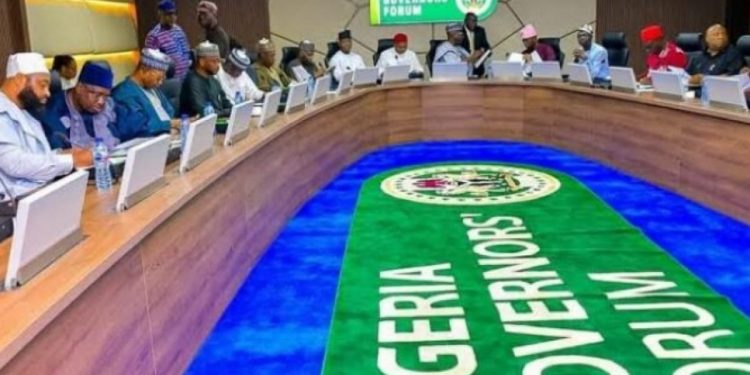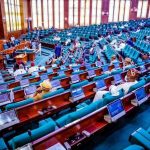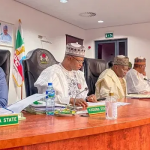The Nigeria Governors’ Forum (NGF) has endorsed a new Value Added Tax (VAT) sharing formula, aiming to ensure fair distribution of resources across the country. This decision was disclosed in a communiqué issued on Thursday, signed by the NGF Chairman and Kwara State Governor, AbdulRahman AbdulRazaq, after sub-national consultations with the Presidential Tax Reform Committee and other key stakeholders, including the Federal Inland Revenue Service (FIRS).
In the communiqué, the NGF expressed strong support for the reform of Nigeria’s outdated tax system, emphasizing the need to modernize it to align with global standards and ensure fiscal stability. The forum approved the following revised VAT-sharing formula:
– 0% based on equality
– 30% based on derivation
– 20% based on population
The NGF also agreed to maintain the current VAT rate and Corporate Income Tax (CIT) rate for now, prioritizing economic stability. Furthermore, the forum called for the continued exemption of essential goods and agricultural products from VAT to protect citizens’ welfare and boost agricultural productivity.
The communiqué also suggested that there should be no terminal clause for agencies like TETFUND, NASENI, and NITDA in the distribution of development levies. It encouraged the continuation of the legislative process for the Tax Reform Bills at the National Assembly.
In contrast, the Tax Reform Committee led by Taiwo Oyedele has proposed a different VAT-sharing model:
– 60% based on derivation
– 20% based on equality
– 20% based on population
Additionally, the committee suggested a reduction in the Company Income Tax (CIT) rate from 30% to 25% over the next two years, and proposed a phased reduction of the VAT rate to 0% for most essential goods, with increases on non-essential items starting in 2025. The committee also recommended introducing a development levy at 4%, aimed at harmonizing taxes.
Despite these changes, Oyedele’s committee proposed maintaining the funding for TETFUND, NASENI, and NITDA through budget allocations without any attempts to scrap them.
This development is a crucial step towards fiscal reforms aimed at enhancing Nigeria’s tax system for the future.










